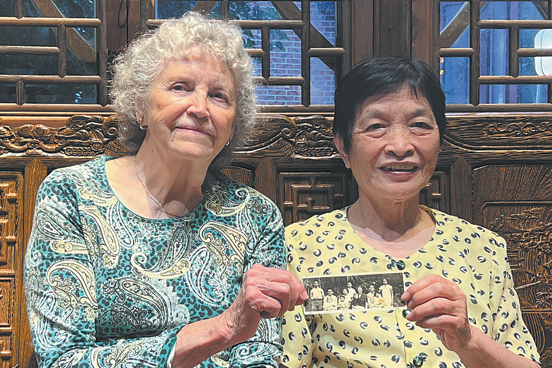Cultural heritage industry standards introduced
By CHENG YUEZHU | CHINA DAILY | Updated: 2023-09-04 08:17
China's first set of industry standards in the field of intangible cultural heritage has been approved for release by the Ministry of Culture and Tourism.
Titled Digital Preservation of Intangible Cultural Heritage:The Collecting and Cataloging of Digital Resources, the standards comprise 11 categories of traditional culture - literature,music, dance, theater, storytelling, sports, acrobatics, fine art,craftsmanship, medicine and folk customs.
Since 2011, the Chinese National Academy of Arts has been preparing the standards,with the help of nearly 100 experts and scholars in the fields of intangible cultural heritage preservation, standardization and digitalization,both from the academy, as well as other academic institutions and research organizations.
"Intangible cultural heritage has become a symbol, through which we can gain an understanding of cultural diversity,"said Wang Fuzhou, deputy director of the academy at a news conference on Aug 28.
"While the expression itself was originally promoted by UNESCO, it has merged well with Chinese traditional culture through cultural exchange, achieving favorable effects in China and garnering acknowledgment among the people."
As the term not only refers to individual art forms, but also entails deep cultural significance, the standards function as a guideline to comprehending intangible cultural heritage, and should be refined in order to become more "scientific, systematic and regulated", he says.
Revisions to the intangible cultural heritage law, first promulgated in 2011, are also being planned, according to Hu Yan, deputy head of the Ministry of Culture and Tourism's department of intangible cultural heritage.
At the news conference, Hu also summarized the digitalization work currently underway.
In 2015, the ministry launched a documentation project to keep a comprehensive and systematic archive of national-level intangible cultural heritage projects and their representative inheritors.
So far, the project has been following up on 1,805 inheritors,recording their craftsmanship and stories in the forms of oral history, documentary footage and tutorial video.
An integrated digital platform for managing intangible cultural heritage projects has also been set up, which encompasses every aspect of a project's administration, from evaluation to funding.
"For the next step, we plan to expand the platform to incorporate the administration of all our intangible cultural heritage efforts, including projects at national, provincial, municipal and county levels, as well as the cultural ecology reserves," Hu said.
When it comes to digitalization, the participation of the general public is also much needed and welcomed, he added.
In recent years, an intangible cultural heritage film festival has been hosted on multiple online platforms. The general public is encouraged to submit their own videos that record intangible cultural heritage projects, or share their own experiences in participating in relevant activities.
"We have a slogan, that is,'everyone is an inheritor of intangible cultural heritage'. We hope that everybody can participate in promoting and documenting our heritage. I believe that what each of us creates is a part of our history," Hu said.
chengyuezhu@chinadaily.com.cn
























